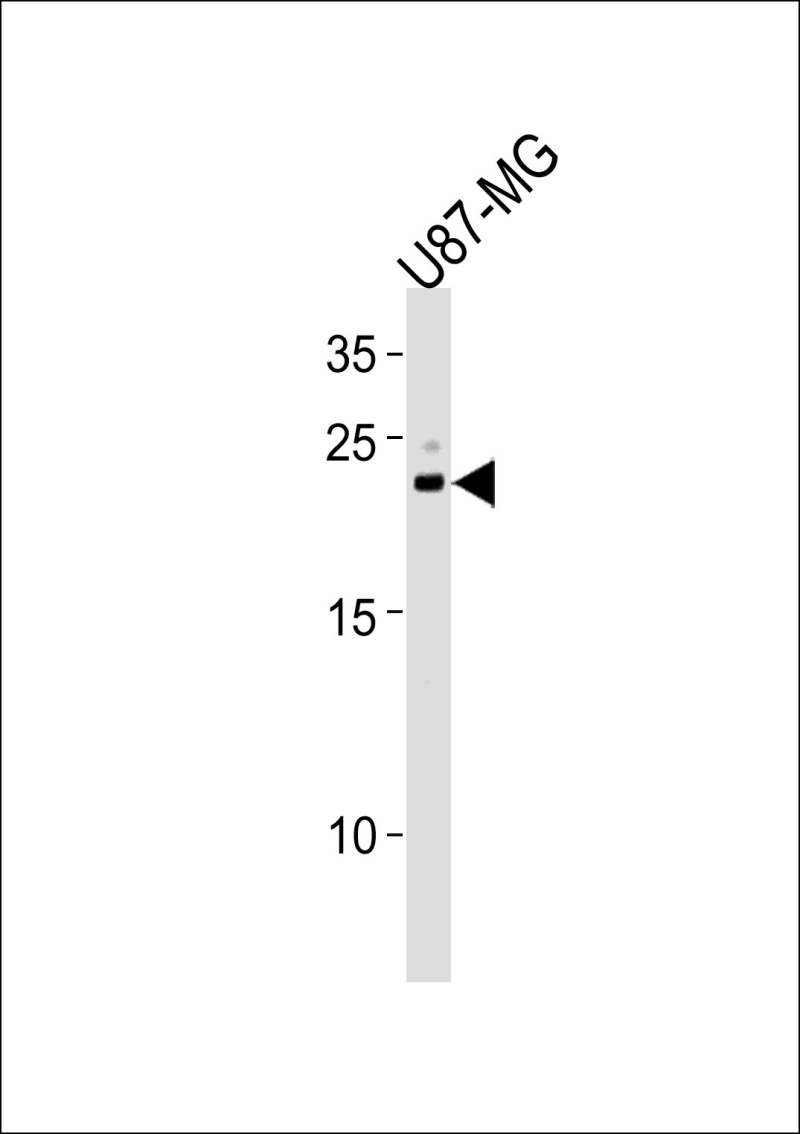
| WB | 1/1000 | Human,Mouse,Rat |
| IF | 咨询技术 | Human,Mouse,Rat |
| IHC | 咨询技术 | Human,Mouse,Rat |
| ICC | 技术咨询 | Human,Mouse,Rat |
| FCM | 咨询技术 | Human,Mouse,Rat |
| Elisa | 咨询技术 | Human,Mouse,Rat |
| Aliases | Ciliary neurotrophic factor, CNTF, CNTF |
| Entrez GeneID | 1270 |
| WB Predicted band size | 22.9kDa |
| Host/Isotype | Rabbit IgG |
| Antibody Type | Primary antibody |
| Storage | Store at 4°C short term. Aliquot and store at -20°C long term. Avoid freeze/thaw cycles. |
| Species Reactivity | Human |
| Immunogen | This CNTF antibody is generated from rabbits immunized with a KLH conjugated synthetic peptide between 114-140 amino acids from the Central region of human CNTF. |
| Formulation | Purified antibody in PBS with 0.05% sodium azide. |
+ +
以下是3篇关于CNTF抗体的代表性文献摘要简述:
1. **文献名称**:Ciliary neurotrophic factor (CNTF) promotes skeletal muscle cell survival via a protein kinase C-mediated pathway
**作者**:DeChiara TM et al.
**摘要**:研究验证了CNTF抗体在阻断CNTF信号通路中的作用,发现其可抑制CNTF对肌细胞的保护效应,揭示了CNTF通过PKC途径调控细胞存活的机制。
2. **文献名称**:A monoclonal antibody against ciliary neurotrophic factor for immunohistochemical application
**作者**:Sendtner M et al.
**摘要**:报道了一种特异性识别CNTF的单克隆抗体的开发,验证了其在组织切片中的免疫染色效果,证明该抗体可有效标记中枢神经系统中的CNTF表达细胞。
3. **文献名称**:CNTF antibody exacerbates disease progression in amyotrophic lateral sclerosis models
**作者**:Giess R et al.
**摘要**:利用CNTF中和抗体在ALS动物模型中抑制内源性CNTF活性,发现其加速运动神经元退化,提示CNTF具有神经保护功能,抗体干预可能加重病理表型。
Ciliary neurotrophic factor (CNTF) antibodies are tools designed to detect and study CNTF, a cytokine belonging to the interleukin-6 (IL-6) family. CNTF is primarily known for its role in supporting the survival and differentiation of neuronal cells, particularly in the peripheral and central nervous systems. It binds to a tripartite receptor complex comprising CNTFRα, gp130. and leukemia inhibitory factor receptor beta (LIFRβ), activating signaling pathways like JAK-STAT, MAPK, and PI3K-Akt. Dysregulation of CNTF has been linked to neurodegenerative diseases, metabolic disorders, and retinal degeneration, making it a target for therapeutic research.
CNTF antibodies are widely used in immunoassays (e.g., ELISA, Western blot, immunohistochemistry) to quantify CNTF expression, localize its presence in tissues, or block its activity in functional studies. Polyclonal antibodies, raised in hosts like rabbits, offer high sensitivity for detection, while monoclonal antibodies provide specificity for targeted applications. Validated antibodies are critical to avoid cross-reactivity with structurally related cytokines like LIF or IL-6.
Research applications include exploring CNTF’s neuroprotective effects in conditions like ALS, glaucoma, or obesity-related metabolic syndromes. Antibodies also aid in evaluating CNTF-based therapies, such as gene delivery or protein supplementation. Challenges include ensuring batch consistency and specificity, given CNTF’s complex receptor interactions. Overall, CNTF antibodies remain indispensable for unraveling its biological roles and translational potential.
×